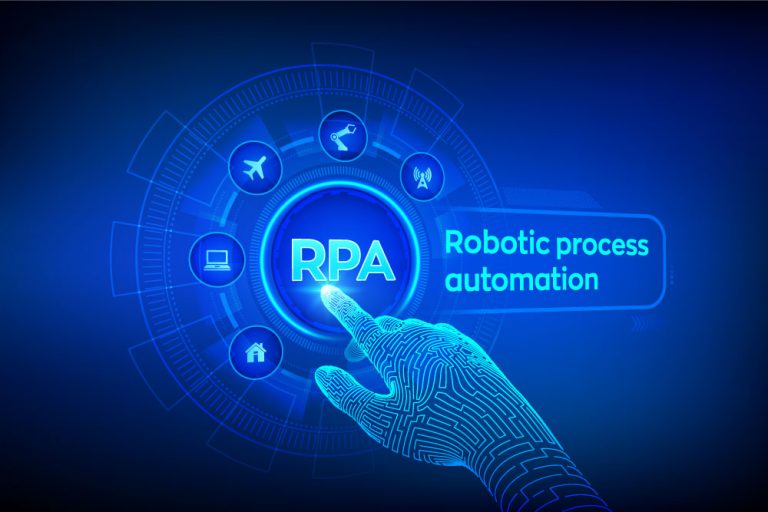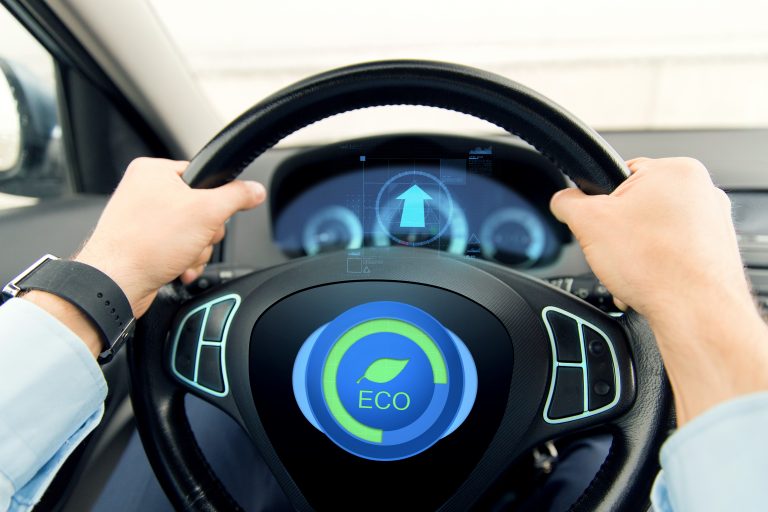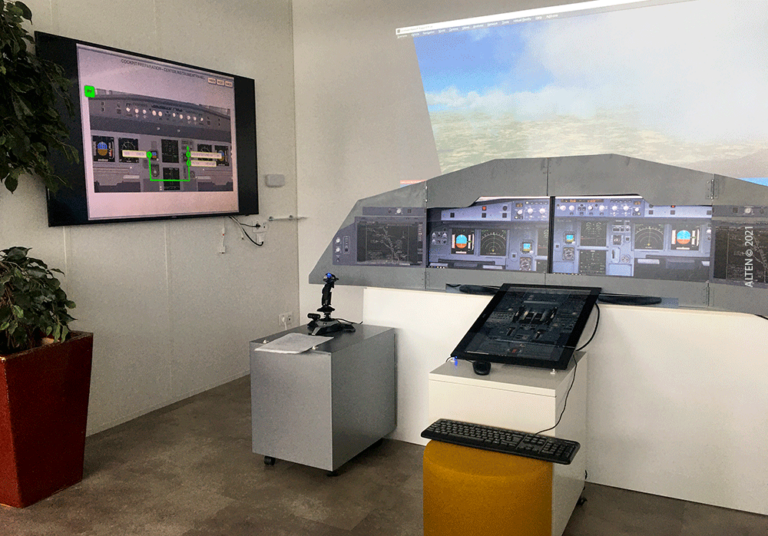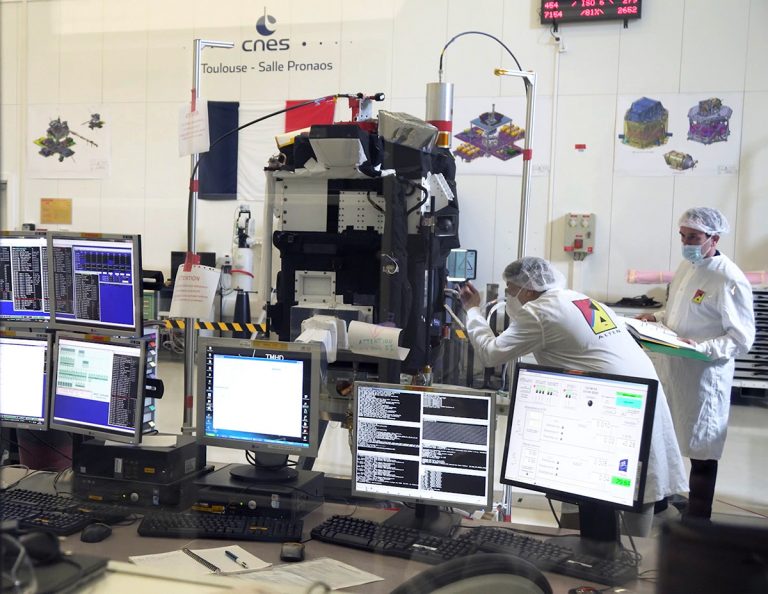Car manufacturers are caught between increasingly strict CO2 emission standards and consumer enthusiasm for large vehicles with a lower fuel efficiency. To entice drivers to choose a cleaner vehicle, manufacturers need to make their clients aware of their fuel consumption and carbon footprint while driving, and to study their travel habits in order to adapt the commercial offer.
For example, to comply with the EU CO₂ emission standards the average emissions of a brand’s new vehicles must be below 95g/km . As a result, car manufacturers have invested, developed and promoted heavily their low-emission vehicles. However, purchasing trends must change before these efforts can pay off.
The development of eco-driving applications is one of the solutions. These are designed to help drivers achieving optimal fuel consumption by encouraging them to anticipate accelerations and braking, use the right engine speed…
When they are “connected”, they combine several data sources and exchange with a remote server to generate more relevant pieces of advice. It also enables manufacturers to know the real needs of their customers. When one needs to renew his vehicle, the brand is able to suggest the most optimized model for his use (e.g., a plug-in hybrid for a driver who commutes 45 km to work every day and 300 km on weekends).
How has the Yuka app influenced on consumer behavior?
Since they manipulate various data sources (vehicle or smartphone sensors, map databases, etc.), eco-driving applications can compare the performance of each individual and use the community effect to democratize eco-friendly behavior. For example, it is possible to create driver rankings according to their emissions.
This “gamification bias” would reinforce the “eco-sensitizing” effect but most of all, it would allow the least polluting car models to be highlighted in the rankings. Indeed, the first step of eco-driving is the choice of a vehicle that consumes little .
Just as Yuka did, these apps can influence the user in their next purchase. Yuka is a mobile application that allows users to scan food and cosmetic products in stores. This barcode scan provides a color code in a few seconds to judge the impact of the product on health. Thus, it promotes healthy and organic products.
In 2019 Yuka conducted a survey of its consumers. 74% of the app’s users said they changed their consumption habits. The development of an eco-driving app could have a similar influence on the automotive sector.
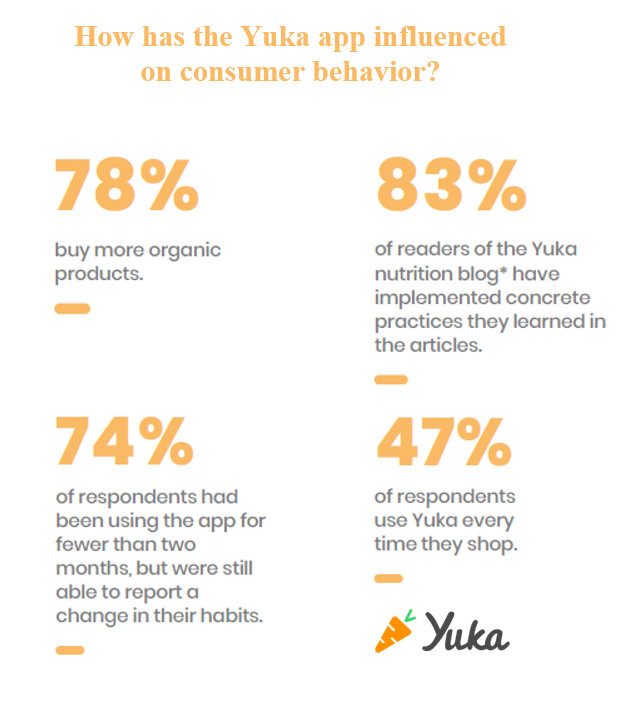
In addition, connected eco-driving apps would allow automotive manufacturers to precisely identify the driving habits of their consumers, allowing them to create personalized and therefore more relevant sales strategies for each consumer.
With the users’ consent, they would precise data sources related to each driver’s need and habits. For example, a car dealer could suggest to an urban driver to go for an electric vehicle instead of a gasoline vehicle.
Purchasing trends versus CO2 emission standards, the dilemma for manufacturers
With the actual regulation and the soon to come Euro 7 standard, the tightening of European environmental regulations continues. Set at 95 grams of CO2 per kilometer in 2020 according to the NEDC protocol, the carbon emission limit is expected to be reduced every year. In addition, from 2021 onwards, emissions will be measured using the WLTP protocol, which provides more realistic but also stricter results. These changes put additional pressure on manufacturers.
Did you know ?
In 2020, 5 pools of manufacturer exceeded the CO2 limits. They were hit with a total of €500M in fines, due to the excess of their fleet carbon emissions.
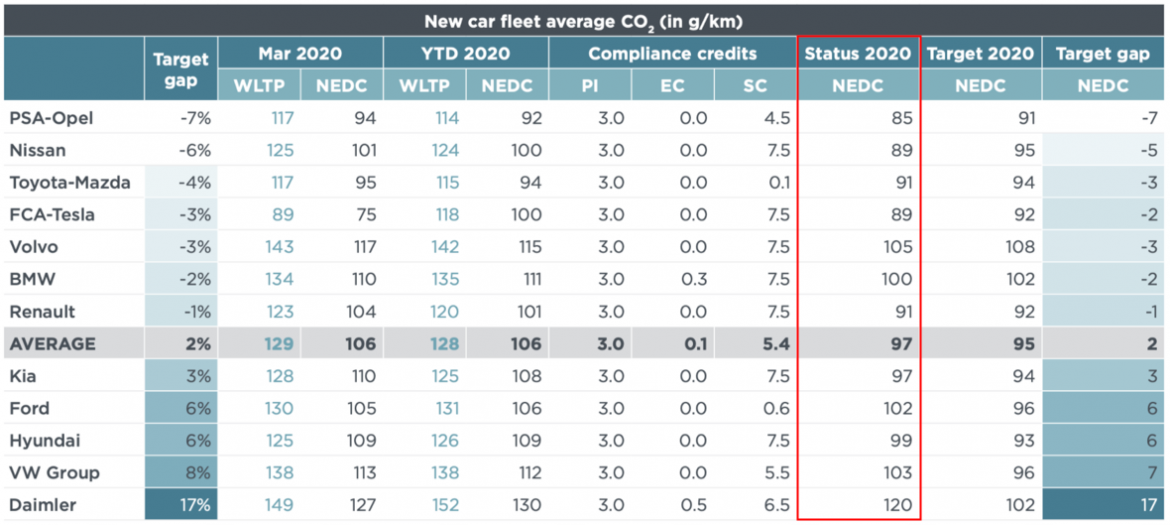
In contrast to regulations that foster “green” vehicles, the purchasing trend continues to move toward the heaviest and most polluting vehicles. In 30 years, vehicles have become roughly 25% heavier.
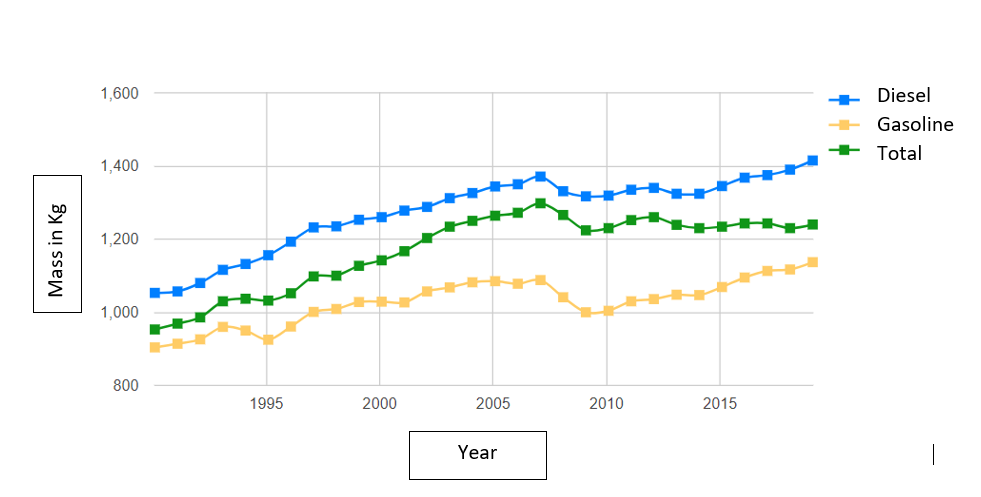
In addition to the increase in average weight, new vehicle purchases in recent years show that petrol engines are increasingly attractive compared to diesel vehicles. An ACEA study showed that in 3 years the share of petrol vehicles has increased by 12.2% while diesel has dropped by 18.7% . This study also shows that even if electric engines are more and more common (3% in 2016 against 8.9% in 2019) they remain rare in this market and are not enough to compensate for the rise of petrol.
ACEA
This dominance of petrol is mainly due to the fact that this type of motorization is less expensive to purchase and maintain. In addition, major cities such as Paris, Madrid, Athens and Mexico City will ban diesel engines from their streets by 2025. Finally, the controversies that occured over the last decade around diesel engines have emphasized this movement.
It is problematic for manufacturers because gasoline engines tend to consume more fuel and therefore emit more CO2 than diesel engines As a result, although gasoline vehicles generate the greatest malus for manufacturers via the CO2 emission standards, consumer demand for them is still very strong. Manufacturers are caught in a crossfire. As they can’t change regulations, they are forced to invest in order to encourage consumers to adopt environmentally friendly behaviors.
What are the already existing apps?
Eco-driving applications are one of the best solutions available to help manufacturers.
Car manufacturers such as Renault or Honda have already integrated such features on their vehicles with Driving Eco 2 or Econ mode.
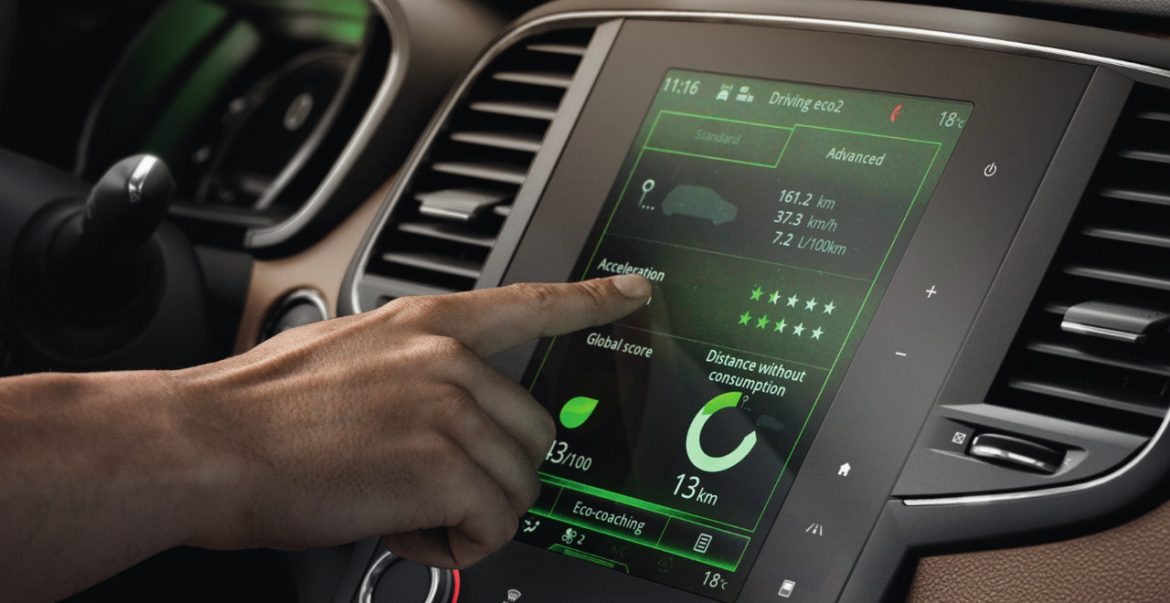

Volkswagen has implemented new tools on its Touareg eHybrid01 and Touareg R models to improve its “predictive hybrid strategy”. When GPS navigation is activated, the vehicle’s computer uses map and topology data to optimize the fuel consumption and the recharging strategy. This has increased the vehicle’s range by reducing its fuel consumption.
However, these solutions are not “connected” or use only a limited number of data sources. The effectiveness of these applications is therefore reduced: their advice is less relevant and the usefulness for manufacturers is less. For example, these applications do not use the potential of the data exchange possible thanks to the native SIM card on all new vehicles (mandatory under the eCall regulation since 2018).
Did you know ?
ALTEN has developed “HAPPY DRIVE”: a service demonstrator based on driver coaching. ALTEN has designed three types of eco-driving coaching ( before, during and after the trip) using five different data sources. This application can be used to retrieve driver reports via a cloud platform for more in-depth analysis of the entire driver population.
It is connected and would provide relevant and evolving pieces of advice to users. Finally it would provide useful data to car manufacturers.
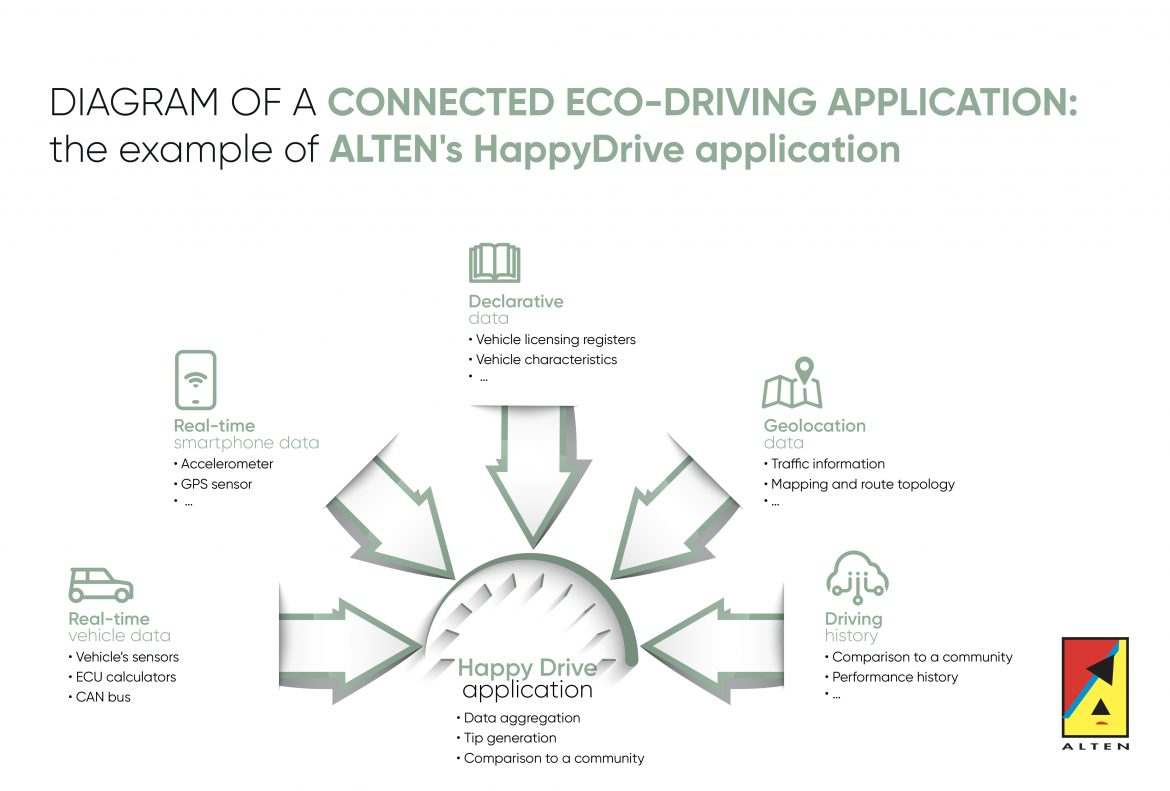
These eco-driving coaching applications are just a sample of existing solutions. To learn more about ALTEN’s projects in the automotive sector, click here or contact us.









